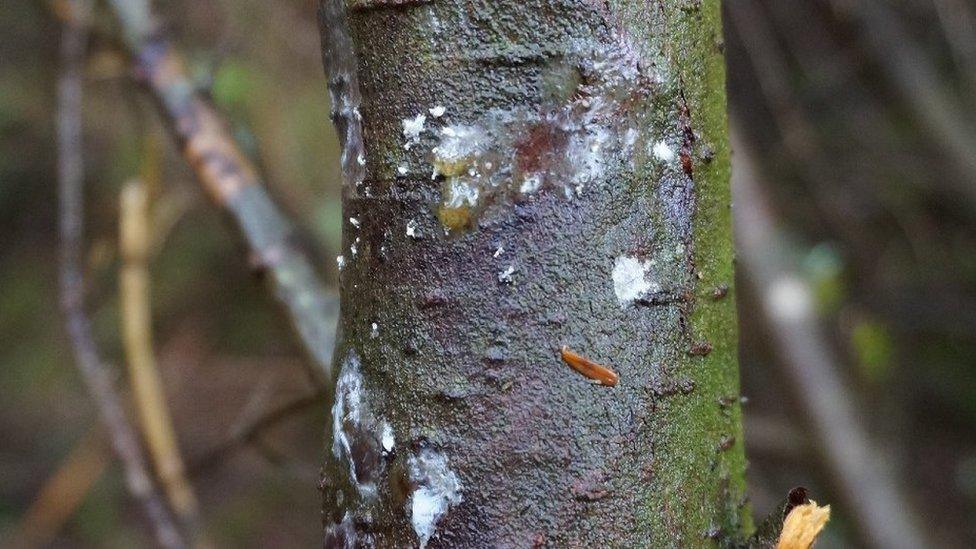Devon and Cornwall tree disease work 'to stop future problems'
- Published

The outbreak of the disease in the South West is the first of its kind reported in Europe
A boundary created to prevent a tree disease spreading could help future problems, an academic says.
The pathogen Phytophthora Pluvialis was discovered in Cornwall last month, with further cases later found in Devon.
A area has been set aside by the Forestry Commission to restrict movements of materials which may contain the disease.
Prof Ian Bateman, from the University of Exeter, said action was needed to stop "massive problems" in the future.
Tree death challenge
When the pathogen was discovered in Cornwall last month it was the first report of its kind in Europe.
It is known to affect tree species including Western Hemlock, Douglas Fir, Tanoak and several pine species.
Prof Ian Bateman, who studies environmental economics at the University of Exeter's Business School, said the fungus-like disease could have a serious impact on trees being planted now.
He said: "If we don't take that into account when we start planting trees for net-zero, to actually try and balance our carbon emissions, we could end up with a situation in 30 or 40 years' time we have massive problems in terms of tree death across the country."
Woodland managers, landowners, the forest industry and nurseries are being urged to remain vigilant and report any sightings via the Tree Alert, external online portal.
Symptoms include lesions on tree stems, branches and roots.

Follow BBC News South West on Twitter, external, Facebook, external and Instagram, external. Send your story ideas to spotlight@bbc.co.uk, external
Related topics
- Published22 October 2021
